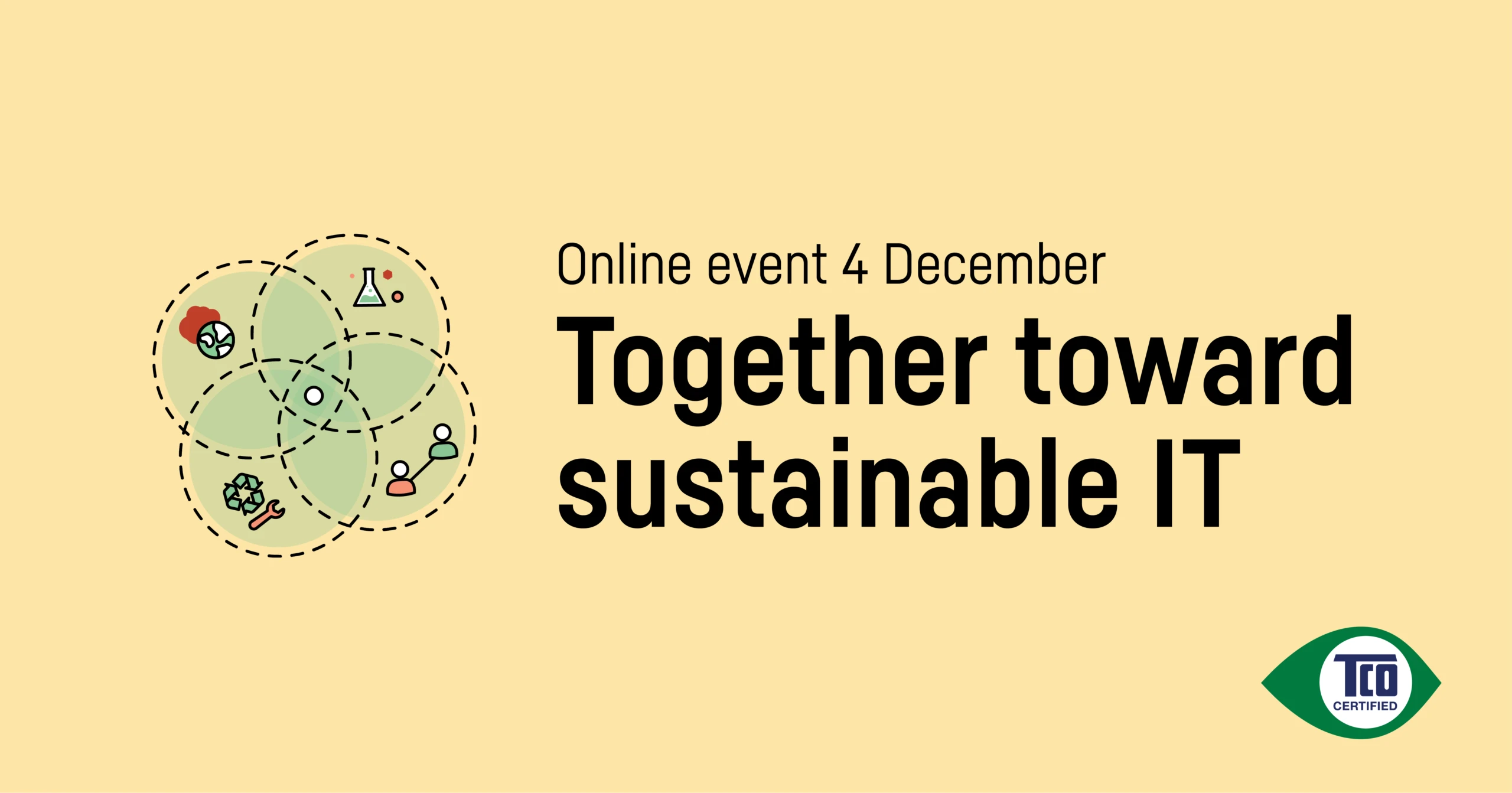The Covid-19 pandemic is putting the world under enormous strain. How does it affect the people working in the IT product supply chain? Stephen Fuller, TCO Development’s expert on social responsibility, shares his view on the current situation.
“When we finally see the end of this pandemic, country economies will be very different. Governments are working to soften the impacts of the crisis through stimulus packages. The hope is that these measures will support workers during the crisis, but that can’t be guaranteed. Whilst they struggle with the impact Covid-19 is having on their economies, manufacturers now have an added responsibility of keeping employees safe and healthy at the workplace by also controlling the spread of Covid-19. The risk is though that due to the crowded working and migrant accommodation situation, the protection provided to workers by manufacturers will not be adequate and the longer the pandemic continues, the more likely it will be that workers will be the hardest impacted, through infection, lost income or increased risk of being replaced by machines.
“As additional stimuli to industry I’m sure some governments are being pressured into considering the easing of certain social and environmental requirements that are meant to protect us and the climate. The risk here is that although a virus has likely been the cause of the fall in pollution and carbon emissions, something collaborating governments for the past 30 years haven’t managed to do, the old fossil dependent industry will return when measures are lifted. Any of the environmental benefits we’re currently witnessing will soon be reset if we don’t allow these changes to have a more persistent effect.
“When it comes to the social impact Covid-19 is having, then it is hard to find any positive benefits. In China, social auditors tell me that production is picking up again after 3-4 months disruption. The same can’t be said for the rest of Asia, Europe or North and South America where the pandemic is still causing lockdowns. For workers in China, the return to work means increased working hours and relaxed labour rights as factories look to meet orders and make up for lost production at the lowest achievable cost.
“Looking ahead, if economies enter a recession and demand decreases, future orders will be cancelled. Due to the lack of enforcement by local authorities of certain labour rights, this will not mean that workers will finally complete orders whilst working to legislated working hour limits, but that many workers will be laid off and those kept on will accept excessive overtime above legal limits, since the legal levels do not provide enough income to cover their living costs.
“There is no indication that things are going to get better for factory workers anytime soon. There are already international social standards announcing additional allowance on already excessive overtime levels whilst the ‘emergency situation’ continues to impact factory production. Eventually, this will lead to physical and psychological fatigue for the worker, causing both dangerous and unhealthy situations. In these times of personal sacrifice through self-isolation for the benefit of those most vulnerable, it’s more important than ever to not lose direction and to protect what we have achieved against the social and environmental negative impacts of the Covid-19 pandemic.
“Another outcome could be an accelerated pace of workers being displaced by automation. The change to automation has until now been rather slow, since the availability of cheap labour and their lack of labour rights has been weighed against the high start-up and investment cost, and maintenance of machines. The impact from millions of workers employed by the manufacturing industry being forced to stay home for months adds a new aspect that could motivate companies to replace workers quicker than originally planned.
“Supply chain responsibility is a continuing challenge in the IT industry, and a cornerstone in TCO Certified. Our goal is to provide a systematic approach to driving safer, more responsible practices, from raw materials extraction through to final assembly. Criteria in TCO Certified are designed to increase supply chain transparency and accountability and drive improvements in areas such as working conditions, anti-corruption, hazardous substances, and conflict minerals. I’m proud to have been a part of the progress we show in our Impacts and insights report from 2019 and what our criteria and verification framework has meant socially and environmentally. This wouldn’t be possible without the support of the international purchasing community, certifying brand owners and manufacturers of certified products. We are determined to make sure none of this progress is lost to the Covid-19 pandemic.
Do you want to learn more about how TCO Certified can help your organization drive social and environmental sustainability? Get in touch with us! Send us an email or book a 15 minute introduction meeting with our purchaser support specialists.




